WE ARE WHO WE ARE – Season One
Two American teenagers come of age while living on a US military base in Italy.
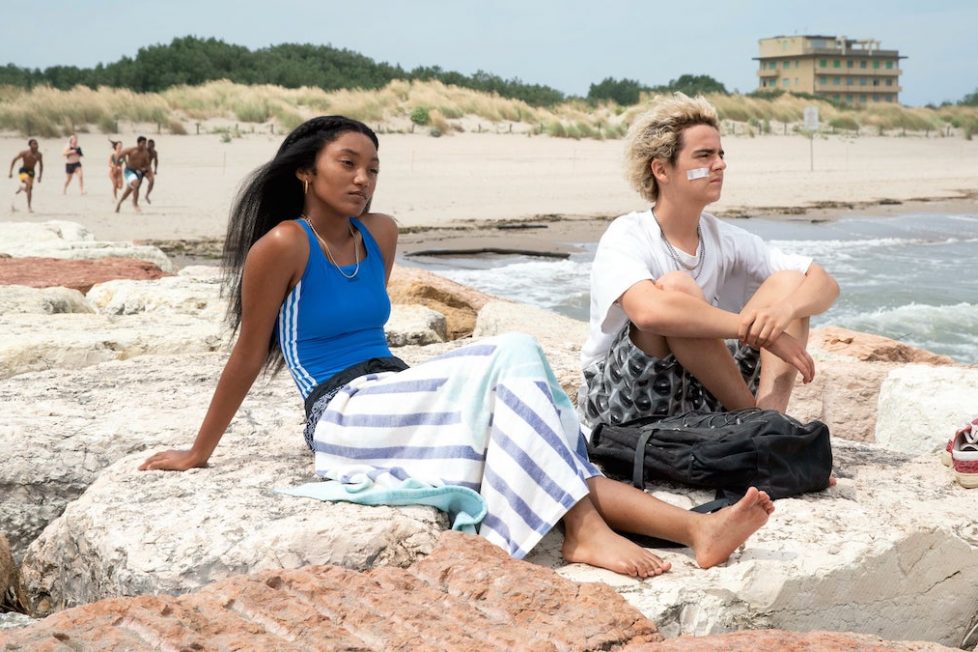
Two American teenagers come of age while living on a US military base in Italy.


From the creator of the Academy Award-winning Call Me By Your Name (2017), Luca Guadagnino is again on fine form writing and directing HBO’s We Are Who Are. It has the same flavours as his critically-acclaimed gay romantic drama but delivers something with more depth and modern significance.
Set on an American military base in Chioggia, Italy, We Are Who We Are’s focus is on two 14-year-olds, Fraser Wilson (It’s Jack Dylan Grazer) and Caitlin ‘Harper’ Poythress (Jordan Kristine Seamón). Fraser’s the new kid on the base after moving there from New York City, after his mother (Chloë Sevigny) is appointed as the base’s new commander, along with her wife Maggie (Alice Braga). He’s soon navigating the social lives of the other kids on the base and, over the course of this eight-part season, WAWWA explores their relationships, their families, their identities, their first loves, and grief.
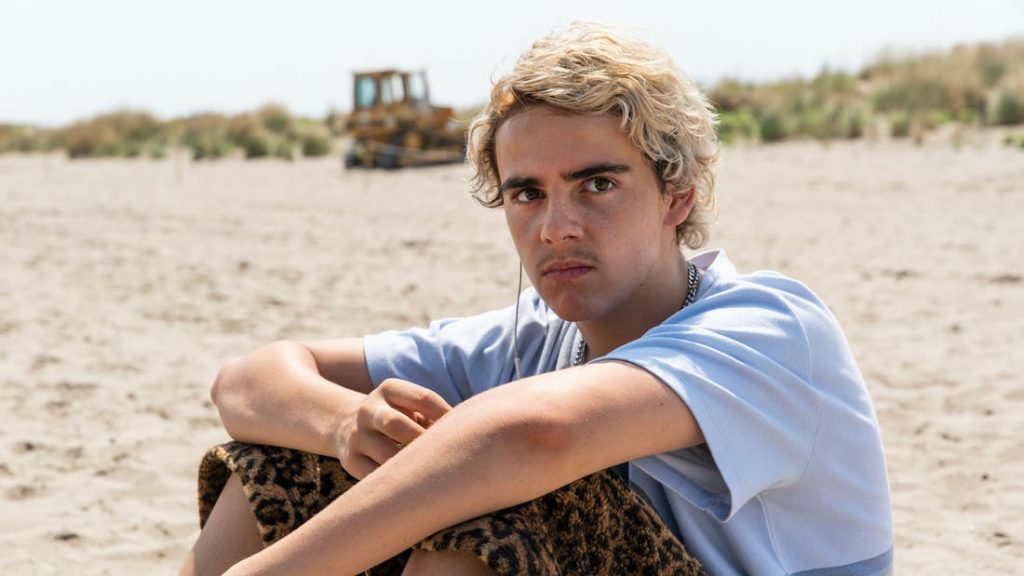
The setup will be familiar to anyone who saw Call Me By Your Name, of which there are plenty of subtle nods to for its fans. (Like blink-and-miss-it cameos from Chalamet and Hammer). From its slice-of-America-in-Italy setting to the worldly, poetry-reciting teenagers, WAWWA stylistically and atmospherically evokes Guadagnino’s Oscar-winner. The score of playful piano tracks contributes a lot to this (not to mention the bourgeoning sexualities and gender identities) and it’s all present from the first frame, accompanied by a fine selection of songs by Blood Orange, Prince, Bowie, and The Rolling Stones.
The first two episodes take place over the same period of time, told from Fraser and then Caitlyn’s perspectives. This feels like a pointless gimmick, in that events could easily have been told side-by-side in a standard narrative. It feels like we to sit through two episodes just to get the setup over with. The writing could have been more efficient, as it’s only after those opening hours that the pair’s friendship begins to blossom and tensions rise between Fraser and Caitlyn’s friends—who see Fraser as a threat and disruptor.
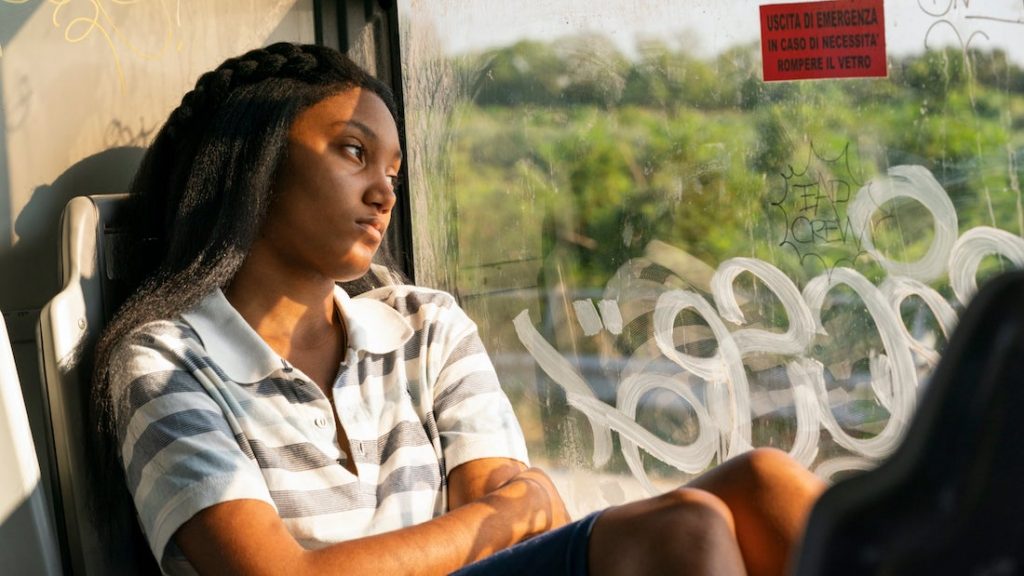
The diverse microcosm of American friends include Caitlyn’s older brother Danny (Spence Moore II), whose mixed-heritage and religious curiosity leads to him practicing Islam; Caitlyn’s overbearing (ex)-boyfriend Sam Pratchett (Ben Taylor); Sam’s older brother Craig (Corey Knight), an enlisted soldier and the paternal anchor of the group, especially to Danny; and Britney (Francesca Scorcese). After Sam breaks up with Caitlyn and her friendship with Fraser begins in earnest, this seems to act as a major catalyst for change in each of these teen’s lives. WAWWA captures that feeling of being on the precipice of some huge change; a transitional period in life that, once over, will define them for years to come.
As Fraser struggles with his sexuality and his confusing and dysfunctional relationship with his mother, Caitlyn struggles with her gender identity and overbearing Trump-supporting father Richard (Scott Mescudi, a.k.a Kid Cudi). After all, one of the first times the pair meet alone Fraser finds Caitlyn passing for a boy, ‘Harper’, at a local cafe. A local Italian girl even gives her her phone number. Everyone, including the couple’s families, assume they’re dating, but in truth they’re forming a life-changing friendship which will see them nurture each other’s flourishing identities and act as each other’s guardians and mentors. Fraser, for example, shows Caitlyn some pictures of transgender people, pre and post transition, which leads to Caitlyn researching hormone therapy and even shaving her head with Fraser in a symbolic act of shedding her skin and entering a new phase in her life.
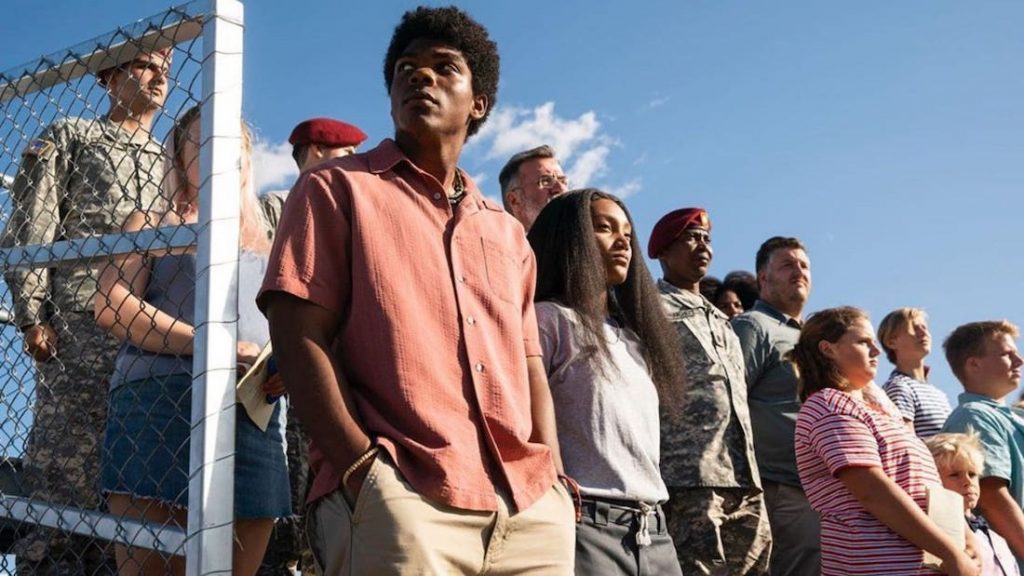
The two teenager’s relationships with their families (and each other) prove to be much more interesting than their friendships. Fraser and Caitlyn are both excellently written and performed, but other than Caitlyn’s brother Danny, we get little insight into the other character’s lives which makes them difficult to understand at times. Fraser’s relationship with his mother is particularly interesting, as he’s prone to violent outbursts against her whereas Sarah will mollycoddle him and almost try to ‘out do’ him with his closest friends. This is epitomised when she dances with Jonathan—Sarah’s assistant and Fraser’s object of desire—and waves at Fraser with a malicious, knowing glare. Other than having an absent father, there’s little explanation as to why they’re so troubled.
Guadagnino acknowledged this complexity in an article he wrote for SBS when addressing Sarah’s similarly complex marital relationship:
I can imagine that certain aspects of their characters and of their narrative arc could prove hard to understand or accept for some, because it’s difficult to imagine that a character who belongs to the minority LGBTQI community can express at once beauty and deep cynicism.
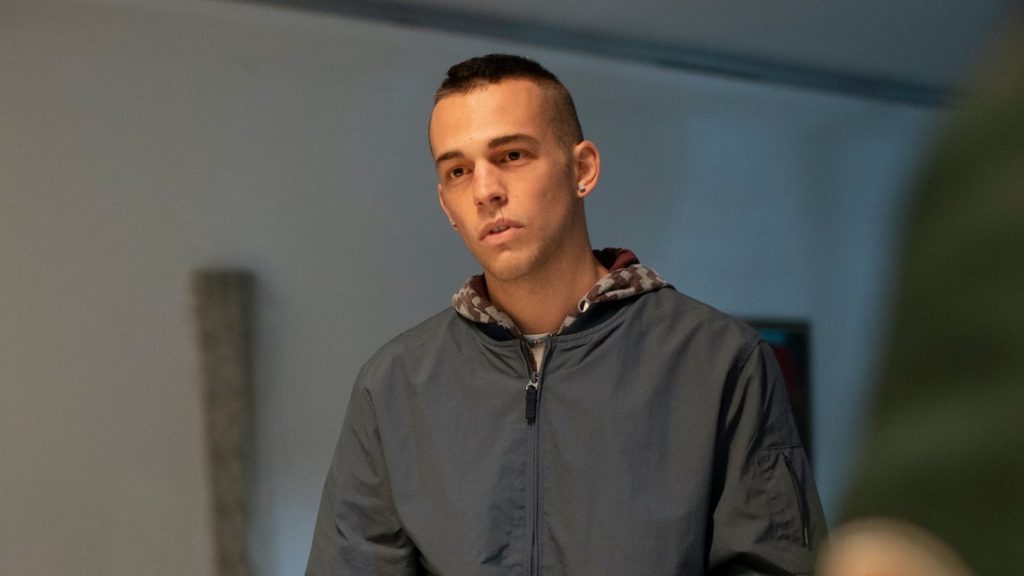
Some aspects of the characters may be hard to understand, but this just reflects the complex nature of human beings. And although some characters aren’t explored as thoroughly as Fraser and Caitlyn, viewers will get the impression that’s just as complex. Considering Guadagnino (along with co-writers Paolo Giordano and Francesca Manieri) have already written an outline for season 2, it wouldn’t be surprising if each character has much more to them which didn’t make it into the final script.
Jack Dylan Grazer and Jordan Kristine Seamón shine in their central roles. Grazer channels the same energy as Chalamet in Call Me By Your Name, but with greater arrogance and unfounded self-confidence, which at times makes Fraser come across as a spoilt brat. This is contrasted, however, in his more vulnerable moments, such as when he tries to come on to Jonathan (a much older man) but quickly changes his mind and finds himself crying in the rain, confused and upset. Seamón, in her screen debut, is simply sensational. She plays Caitlyn with a breezy, natural coolness and seamlessly flits between different expressions of a single character.
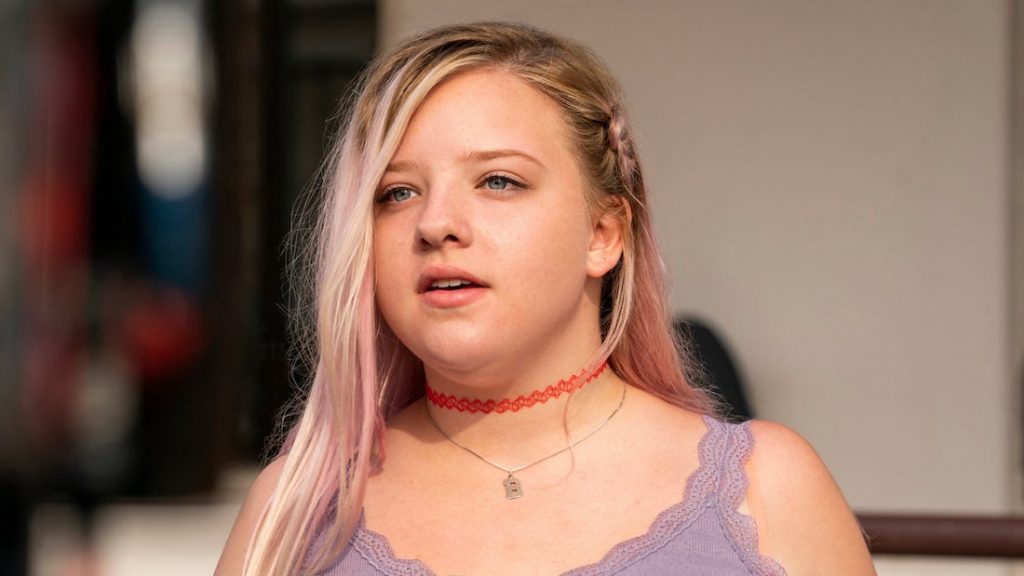
The importance WAWWA has in the presentation of not only a black transgender person as one of its central characters, but the more complex and wider nuances of gender and sexual identity in general can’t be understated. It’s easy for these issues to become engulfed in the ongoing tiresome yet raging ‘culture war’—as if equal rights for LGBTQI people were something controversial—yet by displaying such an individual as Caitlyn’s experience in such a delicate way is both refreshing and affirming.
The backdrop of the 2016 US Presidential Election is a reminder of the aforementioned ‘culture war’. Although politics is never discussed in much depth, the news coverage of his campaign and election victory, Richard’s Trump-supporting views, and the delivery of a large batch of MAGA hats to the base, all snap viewers out of the dreamy quality that WAWWA shares with Call Me By Your Name and binds the narrative to difficult reality.
WAWWA ends with a climax which is both fantastically grandiose, like the end of a rom-com where the protagonist runs through the airport to declare their love, but also deeply intimate. It leaves open the possibility of a second season which, as previously mentioned, already has a written outline. And as WAWWA perfectly demonstrates, our identities are forever evolving, and I’d like to see where Fraser and Caitlyn’s story goes next.
ITALY • USA | 460 MINUTES • 8 EPISODES | 16:9 HD | COLOUR | ENGLISH • ITALIAN


writers: Paulo Giordano, Francesa Manieri & Luca Guardagnino.
director: Luca Guardagnino.
starring: Chloë Sevigny, Jack Dylan Grazer, Alice Braga, Jordan Kristine Seamón, Spence Moore II, Scott Mescudi, Faith Alabi, Francesca Scorsese, Ben Taylor, Corey Knight & Tom Mercier.
